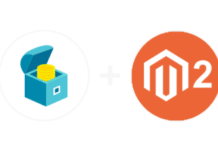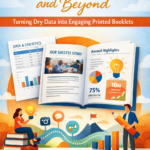https://www.pexels.com/photo/multiracial-couple-giving-high-give-standing-near-pile-of-boxes-4246202
In recent years, the landscape of mortgage applications has undergone significant changes. These changes were not only due to technological advancements – they can be traced back to evolving consumer expectations.
Here are 8 notable examples of how online mortgage applications may be different in the future!
Table of Contents
Seamless digitization
The digitization of services, accelerated by the COVID-19 pandemic, has paved the way for the future of online mortgage applications. While traditional methods often involve cumbersome paperwork and lengthy processing times, the future will see a shift toward fully digital solutions. From the initial submission of applications to their final approval, borrowers can expect a streamlined journey that eliminates the need for physical paperwork and in-person visits to financial institutions.
Enhanced UX of future online mortgage applications
Fintech startups are leading the charge in revolutionizing the mortgage application experience, focusing on improving user experience (UX) through intuitive interfaces and streamlined processes. Borrowers can expect a more convenient and efficient journey toward homeownership in the future, with user-friendly platforms that guide them through each step of the application process.
Automation and end-to-end service
The future of online mortgage applications lies in automation and end-to-end service. Advanced algorithms will drive efficiency throughout the entire process, from initial application submission to final approval and funding. By automating routine tasks and leveraging data analytics, lenders can expedite the decision-making process and reduce the time it takes to approve mortgage applications. This not only benefits borrowers by providing faster access to financing but also allows lenders to streamline their operations and improve overall efficiency.
The role of AI and machine learning in the future of online mortgage applications
The integration of AI and machine learning will further streamline processes and enhance client experiences. From automated document verification to personalized recommendations, efficiency and accuracy will reach newer heights in future online mortgage applications.
By leveraging AI algorithms, lenders can automate routine tasks, reduce manual errors, and improve the overall speed of the application process.
Multiplatform accessibility of future online mortgage applications
The emergence of multiplatform approaches will further increase the accessibility of online mortgage applications in the future. Whether on desktop or mobile devices, borrowers will have the flexibility to manage their applications anytime, anywhere. Mobile apps and responsive web design will ensure that borrowers can easily access and track their mortgage apps from any device.
Integration of data analytics in future online mortgage applications
Data analytics and machine learning technologies will play a crucial role in shaping the future of mortgage online mortgage applications. By leveraging data insights, lenders can personalize offerings and mitigate risks, leading to more informed decision-making. Machine learning algorithms will analyze vast amounts of data to identify patterns and trends in borrower data, such as assessing creditworthiness and determining the most suitable loan products. This will also improve the accuracy of lending decisions.
Impact on client expectations
As online transactions become the norm, clients increasingly expect seamless digital experiences. Financial institutions that fail to adapt risk losing market share to more agile competitors. By prioritizing digital innovation and investing in user-friendly platforms, lenders can meet the evolving needs and expectations of today’s tech-savvy borrowers. From AI-powered chatbots to personalized loan recommendations, lenders are leveraging technology to provide a more personalized and efficient online mortgage application experience in the future.
The use of alternative financing models in future online mortgage applications
Fintech companies are exploring alternative financing models in future online mortgage applications to address the challenge of raising down payments. Innovative solutions, such as community finance and investment-lending platforms, are opening up new avenues for consumers. These platforms allow individuals to invest in real estate projects or pool their resources to finance home purchases, providing alternative sources of funding for borrowers who may not qualify for traditional mortgages.
By democratizing access to homeownership, these alternative financing models have the potential to transform the real estate market and make homeownership more accessible to a broader range of individuals.
Apart from that if you want to know about Understanding Of Website Development And Its Technologies then please visit our Technology Category



























